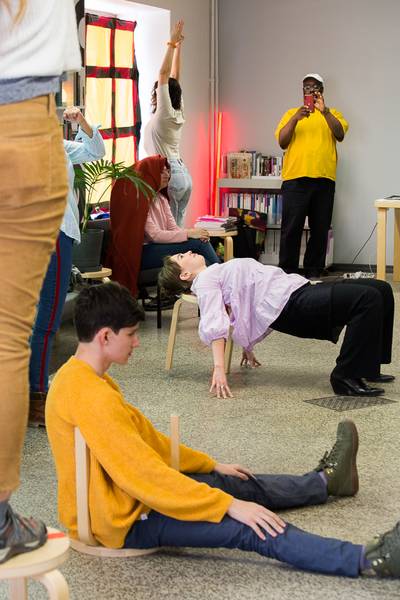

Essays
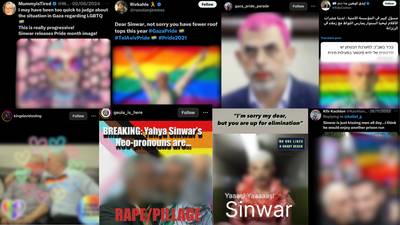

Musa Shadeedi examines how the feminisation and queering of Palestinian resistance in Gaza are used as tools of justifying genocide and occupation. By situating this tactic within its historical colonial and anti-Islamic context, Shadeedi exposes the contradictions inherent in these narratives.
READQueering Hamas: A Colonial Weapon
Musa Shadeedi examines how the feminisation and queering of Palestinian resistance in Gaza are used as tools of justifying genocide and occupation. By situating this tactic within its historical colonial and anti-Islamic context, Shadeedi exposes the contradictions inherent in these narratives.
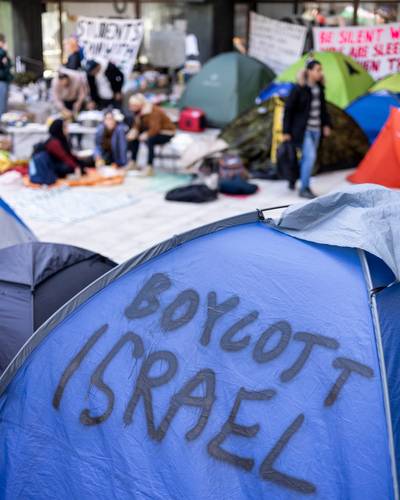

The opposition is not only between institutions and student activists—it also exists within our movement, manifesting in differing strategies. Should we focus on direct, visible actions or institutional processes? Should we shame the university publicly or appeal to its conscience? These approaches are not mutually exclusive—they reinforce each other.
READDisrupting Complicity: Students Organising for Palestine in Finland
Finland is not known for a strong tradition of radical student mobilisation. However, in the wake of the Al-Aqsa Flood and Israel’s genocide of Palestinians in Gaza, a wave of student activism emerged in three universities in Finland’s capital region: University of Helsinki, Uniarts Helsinki and Aalto University. In this text, the students share their experiences and processes while also mapping a web of connections that unite their actions in challenging their university’s complicity in genocide and settler colonialism.
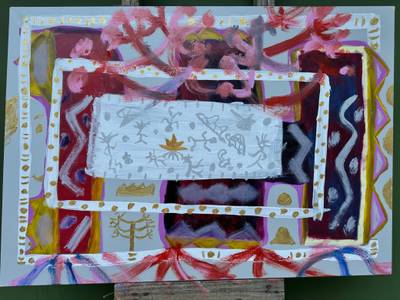

A conversation with Isabel and Carl Gakran about the Zág (Araucaria), an indigenous tree threatened with extinction. We talked about their project (Instituto Zág), Indigenous climate justice and the intersection between the Palestinian and the (Brazilian) Indigenous struggles.
READZág Trees, Forest Spirits, and the Settlers: A Conversation with Xokleng Kin
A conversation with Isabel and Carl Gakran about the Zág (Araucaria), an indigenous tree threatened with extinction. We talked about their project (Instituto Zág), Indigenous climate justice and the intersection between the Palestinian and the (Brazilian) Indigenous struggles.
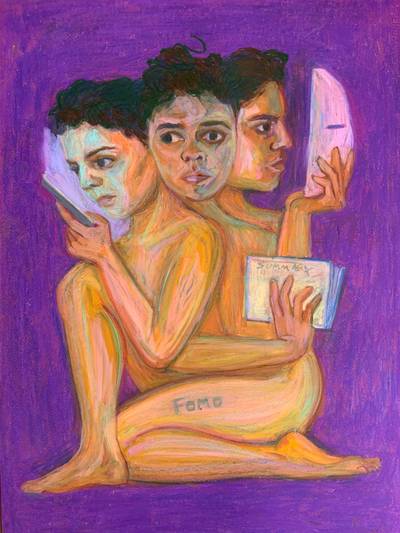

Being nearby might appear effortless, non-spectacular, and quiet. In dailiness, it fleshes out as a nonapparent, voyeuristically undetectable choreography of multiple consensual labours and commitments sore and exhausted with recurring waves of critical awareness about the dynamic injustices of the dominant world. Being nearby is not easy. I imagine its power and radical potential accumulating exactly in its uneasy, laborious nonapparentness: its working might remain undetected for the normative structures and appear inconsequential for the gargantuan dominant world.
READQueercrip Reflection on the Politics of Holding Tight vs. Being Nearby
Reflecting on the politics of holding and being nearby framed through the lens of queercrip experience and world-making to understand themes of embodiment, institutional trauma, and ethical social relationships.
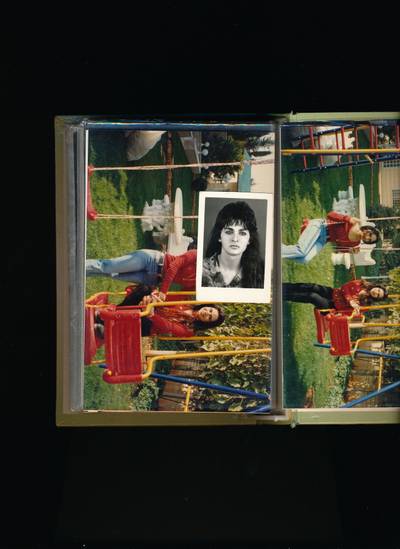

How I come to imagine freedom in the context of the Kurdish struggle is my own form of un-learning. It is an un-learning that has left third-degree burns as I grieve the many magical possibilities I imagined as a child. Firstly, there was always an imagining of a return. Then there was an imagining of a gentler story - one not so filled with the relentless cycle of violence. One where Kurdish women weren’t killed by their own families, their husbands, or whoever it was that imprisoned Öcalan. The third was access. Being able to access my grandparents at any will.
READWho Gets to Live? — On Archives and Kurdish Identity Formation
Êvar Hussayni’s essay is an engagement with her memories through Jineolojî, shaped as they are by a mix of rage, grief and longing. It is an evolving testament to a Kurdishness that is intimately personal and profoundly collective, and continuously shaped by Kurdish women who remember, resist, and redefine themselves to exist outside of the colonial framework.
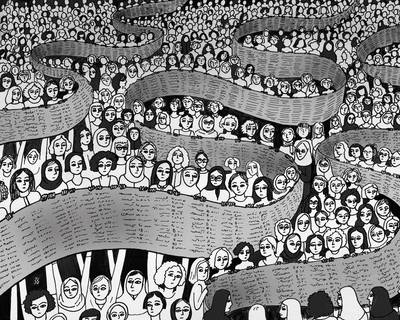

These methods, besides protesting and street face-to-face talking and gathering signatures, were necessary to undo the normality of discrimination and patriarchy. The one million signature campaign brought a reviving soul into Iran’s feminist movement and civil society by bringing the challenge to homes, families, streets, and every public space, such as buses, parks, and workspaces. Face-to-face conversations would bring deep conversations, many personal stories and many more people to join the movement.
READWe Change: On the Processes of Iran’s One Million Signature Campaign
Iran’s women-led One Million Signatures Campaign for the Reform of Discriminatory Laws was an extraordinary phenomenon. What you read here is a personal reflection on the democratic, nonhierarchical, open, and evolving organising processes of this campaign.
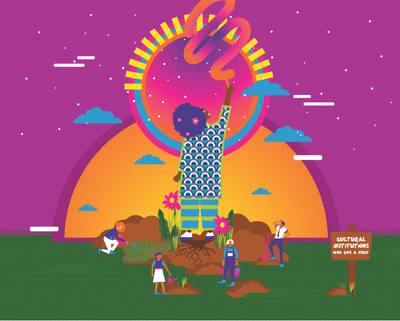

We cannot use geography as the perimeter for cultural exchange; instead, we should look at the space where the exchange takes place. Who is curating, producing and inviting these artists? These are central questions defining whether the transference is cultural exchange or not. In this essay, I deconstruct the ‘power dynamics of cultural exchange’ from the perspective of Gambian and Senegalese artists and elaborate on how the room, respect, celebration, identity and negotiation play a pivotal role in cultural exchange.
READFrom Periphery to Center: Deconstructing the Power Dynamics of Cultural Exchange
We love to talk about mutual respect and celebrating art, so what does that mean in the context of Cultural Exchange? The art field is often viewed as progressive when it comes to inclusion, but is it?
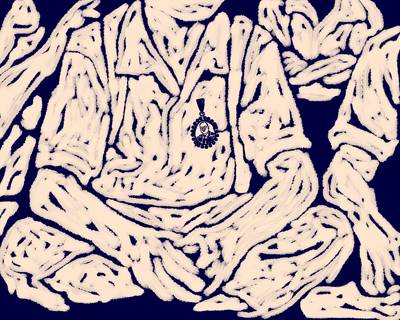

Every Dalit student getting an education in India is reclaiming their right to humanity, questioning those in power, and working towards dismantling these power structures. In this process, it is important to archive our experiences, express our views, and engage in an ongoing conversation on education systems as a tool for liberty.
READReimagining Education: A Vision of Justice and Equity
In the shadow of towering institutions, how do Dalit students navigate a maze of discrimination, carving out a space for themselves amid the pervasive societal gaze?
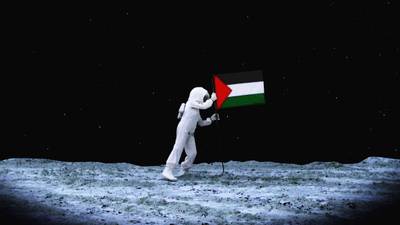

As the voices calling for Palestinian freedom intensify by the day, it benefits this critical moment to examine possible exercises in re-thinking settler-colonial and postcolonial violence while imagining alternative futures. The Palestinian struggle for a liberated future necessitates borrowing from other cultures and traditions while carving out spaces for emboldening and empowering intersectionality. With that in mind, what potentialities of hope and resistance can be encapsulated under alternative imaginings of the (Palestinian) future?
READA Space for Palestine: Between Science & Critical Climate Fiction
How does adopting the critical lens of indigenous climate fiction open more generous future possibilities for the colonized- especially Palestinians, who continue to suffer from the expansive and fatal repercussions of Israeli settler-colonialism?
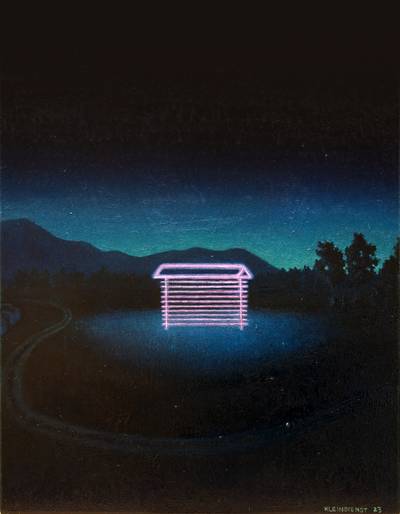

the disturbances that these works are tackling are not pervading in a grandiose manner of overwhelming catastrophes that are daily broadcasted over popular media. Instead, they appear as quiet signifiers of larger issues whose complexity remains opaque. In a way, they feel similar to glitch, as a temporary broken image in which precisely this rupture holds the troublesome message. This way, the expected pattern is broken, and the artist interferes with the existing paradigm in order to challenge its meaning fragmentally.
READTraces of Landscape Disturbances
How can landscape disturbances, both overt and subtle, be addressed effectively in art practices? The essay explores works by Slovenian and Croatian artists, examining their engagement with the environment on a micropolitical level and challenging imposed divisions.
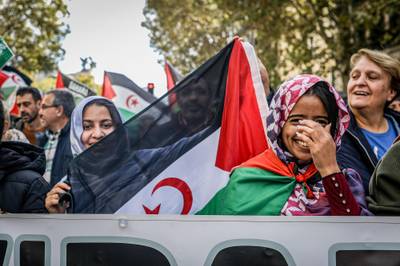

In 2022, I travelled to the occupied city of Laayoune with journalist Jacob Kushner to report on how Morocco’s government had weaponized the COVID-19 pandemic as another excuse to persecute Sahrawi independence activists. One of the tell-tale signs of the occupation is how the Moroccan flag is draped everywhere, to an extent not seen in Morocco.
READThe Continued Occupation of Western Sahara
Western Sahara has been occupied by the Kingdom of Morocco for nearly half a century. Throughout the pandemic, Morocco weaponized COVID-19 as yet another tool in its arsenal to violently repress Sahrawi independence activists, with ramifications palpable throughout Western Sahara to this day.

